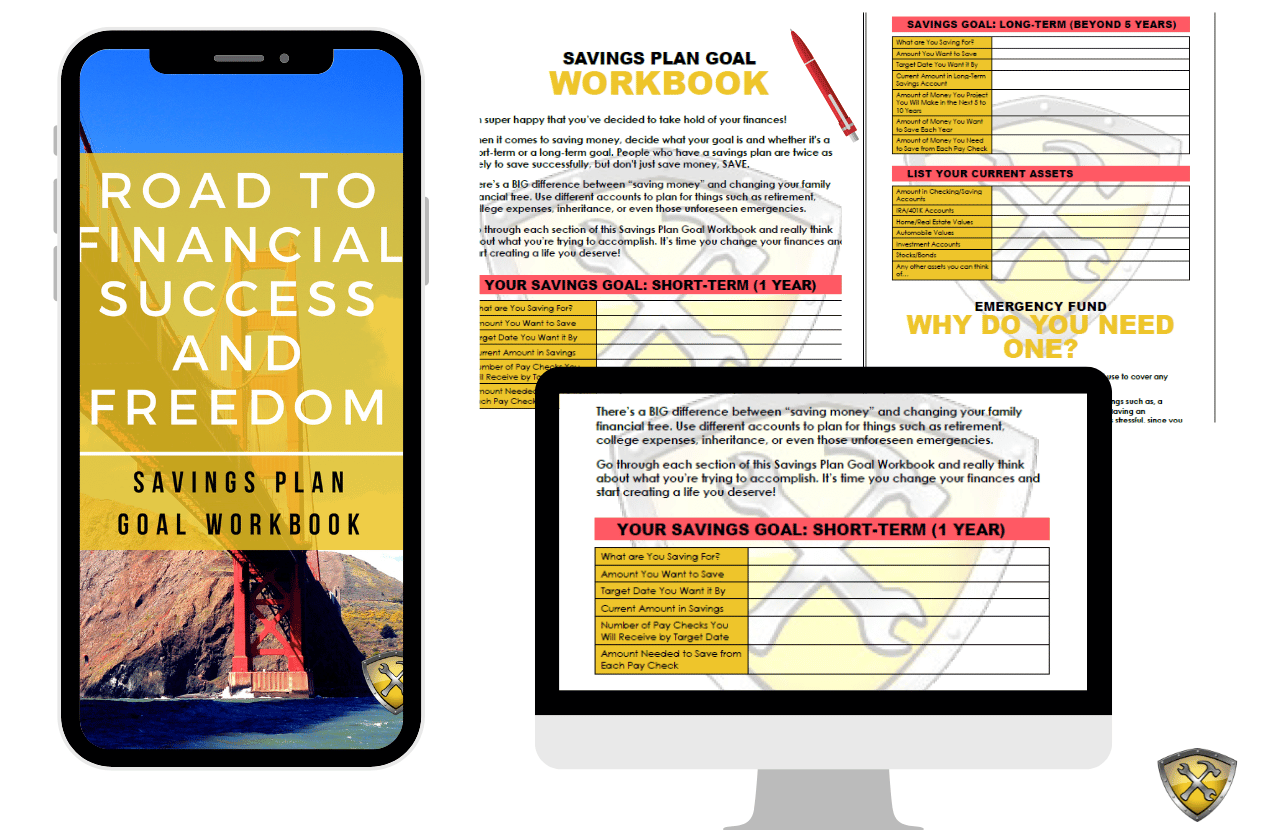IRS Refund Cycle Charts apply to direct deposit and check dates. Listed below are charts of the Refund Cycle based on filing and transmitting tax returns.
These dates are estimated and have not been and will not be published by the IRS.
The IRS refunds are usually issued within 21 days of the return being accepted. The bank may take up to 2 business days to post the direct deposit.
The tax refund schedule dates are only estimates based on information from the IRS. The IRS can’t guarantee the date you will receive your refund. These estimates are based on historical data and IRS guidelines, which are subject to change.
Based on historical IRS processing timelines and assuming the IRS begins accepting tax returns on January 27, 2025, here is an estimated refund cycle chart:
| Date Accepted | Direct Deposit Sent | Paper Check Mailed |
|---|---|---|
| Jan 27 – Feb 1, 2025 | Feb 17, 2025 | Feb 21, 2025 |
| Feb 2 – Feb 8, 2025 | Feb 24, 2025 | Feb 28, 2025 |
| Feb 9 – Feb 15, 2025 | Mar 3, 2025 | Mar 7, 2025 |
| Feb 16 – Feb 22, 2025 | Mar 10, 2025 | Mar 14, 2025 |
| Feb 23 – Mar 1, 2025 | Mar 17, 2025 | Mar 21, 2025 |
| Mar 2 – Mar 8, 2025 | Mar 24, 2025 | Mar 28, 2025 |
| Mar 9 – Mar 15, 2025 | Mar 31, 2025 | Apr 4, 2025 |
| Mar 16 – Mar 22, 2025 | Apr 7, 2025 | Apr 11, 2025 |
| Mar 23 – Mar 29, 2025 | Apr 14, 2025 | Apr 18, 2025 |
| Mar 30 – Apr 5, 2025 | Apr 21, 2025 | Apr 25, 2025 |
| Apr 6 – Apr 12, 2025 | Apr 28, 2025 | May 2, 2025 |
| Apr 13 – Apr 19, 2025 | May 5, 2025 | May 9, 2025 |
| Apr 20 – Apr 26, 2025 | May 12, 2025 | May 16, 2025 |
| Apr 27 – May 3, 2025 | May 19, 2025 | May 23, 2025 |
Note: These dates are estimates and can vary based on IRS processing times and individual circumstances.
If you’d like to know why your refund may be delayed, check out Where’s My Refund.
5 Pro Tips for Tax Season 2025
While you’re reviewing the IRS refund cycle chart, here are a few tips to help you prepare for the 2025 tax season.

1. Gather Tax Checklist Documents
As financial statements begin to roll in, place them in a dedicated folder or binder and mark 2024 tax information.
In this folder you can also place your W2s, mortgage interest document, giving contribution statement, and any other tax-related documents.
This will not only make it easy for you, it will also make it a smooth process when your taxes are being prepared by a qualified Tax Advisor.
Another important tip to keep in mind when gathering data for the 2025 tax season, is to know where everyone’s important cards and certificates are located for your family.
Important tax checklist identification items such as:
- social security cards
- driver’s license
- passports
These are needed to help save both you and the Tax Preparer much time when filing taxes.
Click HERE for the complete tax preparation checklist needed for filing your taxes.
2. Organize Your Tax Preparation Documents
Organization is key to surviving the tax season.
It’s not too late to start going through your receipts and bank statements from 2024. This is the primary key to making tax prep easier and faster.
You can choose to do it all at once in one day or for others who hate anything tax related, try going through two months of financial documents a day in order to ease the burden.
3. Know Your Tax Filing Status
According to the IRS, filing status impacts the calculation of income tax, affects the amount of the standard deduction, and determines allowance or limitation of certain credits and deductions.
The following list puts the filing statuses in order from the most beneficial to the least beneficial to the taxpayer.
What was Your Tax Filing Status at the end of 2024?
- Married Filing Jointly
- Qualifying Widow(er) with Dependent Child
- Head of Household
- Single
- Married Filing Separately
Save Money (even on a tight budget) with This ULTIMATE SAVINGS GUIDE!
What Filing Status Should I Use?
It is very important to select the correct filing status when filing your individual tax return. Many tax credits, deductions, and the amount of taxes paid are dependent upon the filing status selected.

At times, more than one filing status may apply to you. In this case, you should work with your Tax Advisor to figure out which status is best for you.
The 5 Filing Statuses:
- Single – You must file single if you are considered unmarried and do not qualify for any other filing status.
- Married Filing Jointly – You can file as married filing jointly if you are considered married and your spouse agrees to file a joint return.
- Married Filing Separately – You can file as married filing separately if you desire or if you cannot agree to file a joint return with your spouse.
- Head of Household – You can file as head of household if you meet all of the following requirements:
- Unmarried or considered unmarried on the last day of the year
- Paid more than half of the cost of keeping up a home for the year
- A qualifying person lived in your home for more than half of the year except for temporary absences such as illness, education, business, vacation, or military service. If the qualifying person is the dependent parent, the qualifying person does not have to live with you.
- Qualifying Widow(er) with dependent child – A widow or widower with one or more dependent children may be able to use the qualifying widow with dependent child filing status.
More Tax Tips: Get the Ultimate 2025 Tax Preparation Guide that could save you money this year right here!
4. List All Possible Tax Deduction
A tax deduction works by totaling your deductions and subtracting them from your adjusted gross income or AGI. This reduces your tax bill for the year.
A tax deduction is commonly a result of expenses, particularly those expenses that were incurred to produce additional income.
There are two types of tax deductions: Standard Deduction and Itemized Deduction.
The IRS lets you decide whether you want to claim the standard deduction or itemize your deductions. Most people choose the standard deduction because it’s easier and may provide a greater deduction.
Standard Tax Deduction
The standard deduction is a fixed amount set by the IRS that reduces your adjusted gross income; however, it is based on your filing status, which is determined by your marital status as of the end of the year.
You can view the 2024 Standard Tax Deduction table here.
Itemized Tax Deduction
Individual deductions are kept track of throughout the year.
If your total itemized deductions exceed the amount of your standard deduction, then you’d probably want to go with the itemized deduction option.
You’ll receive a bigger tax break with this option; however, it may be more work on the back end.
Most people like itemized tax deductions because they involve expenses you have to take on anyway, like your mortgage and property taxes.
Common Types of Itemized Deductions:
- Mortgage Interest
- Property Taxes
- Charitable Donations (donating to Goodwill, tithing at church, giving money to non-profit organizations, etc.)
- Medical Expenses
File Your Taxes with Ease from Home Today with TurboTax!
5. Search for a Tax Preparer or Accountant Early
When searching for a qualified Tax Preparer, be sure to know what his or her mission statement is and what type of service they offer.
Always check the availability and accessibility of the preparer (year-round vs seasonal availability) just in case you need to contact them for an emergency.

Referral from a trusted friend or family member is a good way to figure out if the Tax Preparer is ethical and honest.
Be wary of boosted promises that cannot be backed up by the current IRS policies.
For example, if you see tax signs around your city that guarantees an enormous refund check, then RUN FAR AWAY!
A good tax advisor will be upfront about their service, cost, and the reality of your situation. Your tax refund or tax payment will be the SAME no matter who you go to…
…as long as every applicable tax deduction, tax credit, and accurate financial information is given.
If you’d like to read the full guide to easy tax planning, then check out the article here.
Get your Free 2025 Tax Preparation Checklist
Historical IRS e-file Refund Cycle Charts
2024 IRS e-file Refund Cycle Chart
| Date Accepted | Direct Deposit Sent | Paper Check Mailed |
|---|---|---|
| Jan 29 – Feb 3, 2024 | Feb 16, 2024 | Feb 21, 2024 |
| Feb 4 – Feb 10, 2024 | Feb 23, 2024 | Feb 28, 2024 |
| Feb 11 – Feb 17, 2024 | Mar 1, 2024 | Mar 6, 2024 |
| Feb 18 – Feb 24, 2024 | Mar 8, 2024 | Mar 13, 2024 |
| Feb 25 – Mar 2, 2024 | Mar 15, 2024 | Mar 20, 2024 |
| Mar 3 – Mar 9, 2024 | Mar 22, 2024 | Mar 27, 2024 |
| Mar 10 – Mar 16, 2024 | Mar 29, 2024 | Apr 3, 2024 |
| Mar 17 – Mar 23, 2024 | Apr 5, 2024 | Apr 10, 2024 |
| Mar 24 – Mar 30, 2024 | Apr 12, 2024 | Apr 17, 2024 |
| Mar 31 – Apr 6, 2024 | Apr 19, 2024 | Apr 24, 2024 |
| Apr 7 – Apr 13, 2024 | Apr 26, 2024 | May 1, 2024 |
| Apr 14 – Apr 20, 2024 | May 3, 2024 | May 8, 2024 |
| Apr 21 – Apr 27, 2024 | May 10, 2024 | May 15, 2024 |
2023 IRS e-file Refund Cycle Chart
| DATE ACCEPTED | DIRECT DEPOSIT SENT | PAPER CHECK MAILED |
|---|---|---|
| Jan 23 – Jan 28, 2023 | Feb 10, 2023 | Feb 15, 2023 |
| Jan 29 – Feb 4, 2023 | Feb 17, 2023 | Feb 22, 2023 |
| Feb 5 – Feb 11, 2023 | Feb 24, 2023 | Mar 1, 2023 |
| Feb 12 – Feb 18, 2023 | Mar 3, 2023 | Mar 8, 2023 |
| Feb 19 – Feb 25, 2023 | Mar 10, 2023 | Mar 15, 2023 |
| Feb 26 – Mar 4, 2023 | Mar 17, 2023 | Mar 22, 2023 |
| Mar 5 – Mar 11, 2023 | Mar 24, 2023 | Mar 29, 2023 |
| Mar 12 – Mar 18, 2023 | Mar 31, 2023 | Apr 5, 2023 |
| Mar 19 – Mar 25, 2023 | Apr 7, 2023 | Apr 12, 2023 |
| Mar 26 – Apr 1, 2023 | Apr 14, 2023 | Apr 19, 2023 |
| Apr 2 – Apr 8, 2023 | Apr 21, 2023 | Apr 26, 2023 |
| Apr 9 – Apr 15, 2023 | Apr 28, 2023 | May 3, 2023 |
| Apr 16 – Apr 22, 2023 | May 5, 2023 | May 10, 2023 |
| Apr 23 – Apr 29, 2023 | May 12, 2023 | May 17, 2023 |
| Apr 30 – May 6, 2023 | May 19, 2023 | May 24, 2023 |
2022 IRS e-file Refund Cycle Chart
| DATE ACCEPTED | DIRECT DEPOSIT SENT | PAPER CHECK MAILED |
| Jan 31 – Feb 5, 2022 | Feb 21, 2022 | Feb 25, 2022 |
| Feb 6 – Feb 12, 2022 | Feb 28, 2022 | Mar 4, 2022 |
| Feb 13 – Feb 19, 2022 | Mar 7, 2022 | Mar 11, 2022 |
| Feb 20 – Feb 26, 2022 | Mar 14, 2022 | Mar 18, 2022 |
| Feb 27 – Mar 5, 2022 | Mar 21, 2022 | Mar 25, 2022 |
| Mar 6 – Mar 12, 2022 | Mar 28, 2022 | Apr 1, 2022 |
| Mar 13 – Mar 19, 2022 | Apr 4, 2022 | Apr 8, 2022 |
| Mar 20 – Mar 26, 2022 | Apr 11, 2022 | Apr 15, 2022 |
| Mar 27 – Apr 2, 2022 | Apr 18, 2022 | Apr 22, 2022 |
| Apr 3 – Apr 9, 2022 | Apr 25, 2022 | Apr 29, 2022 |
| Apr 10 – Apr 16, 2022 | May 2, 2022 | May 6, 2022 |
| Apr 17 – Apr 23, 2022 | May 9, 2022 | May 13, 2022 |
| Apr 24 – Apr 30, 2022 | May 16, 2022 | May 20, 2022 |
| May 1 – May 7, 2022 | May 23, 2022 | May 27, 2022 |
2021 IRS e-file Refund Cycle Chart
| DATE ACCEPTED | DIRECT DEPOSIT SENT | PAPER CHECK MAILED |
| Jan 25 – Jan 30, 2021 | Feb 15, 2021 | Feb 19, 2021 |
| Jan 31 – Feb 6, 2021 | Feb 22, 2021 | Feb 26, 2021 |
| Feb 7 – Feb 13, 2021 | Mar 1, 2021 | Mar 5, 2021 |
| Feb 14 – Feb 23, 2021 | Mar 8, 2021 | Mar 12, 2021 |
| Feb 21 – Feb 27, 2021 | Mar 15, 2021 | Mar 19, 2021 |
| Feb 28 – Mar 5, 2021 | Mar 22, 2021 | Mar 26, 2021 |
| Mar 7 – Mar 13, 2021 | Mar 29, 2021 | Apr 2, 2021 |
| Mar 14 – Mar 20, 2021 | Apr 5, 2021 | Apr 9, 2021 |
| Mar 21 – Mar 27, 2021 | Apr 12, 2021 | Apr 16, 2021 |
| Mar 28 – Apr 3, 2021 | Apr 19, 2021 | Apr 23, 2021 |
| Apr 4 – Apr 10, 2021 | Apr 26, 2021 | Apr 30, 2021 |
| Apr 11 – Apr 17, 2021 | May 3, 2021 | May 7, 2021 |
| Apr 18 – Apr 24, 2021 | May 10, 2021 | May 14, 2021 |
| Apr 25 – May 1, 2021 | May 17, 2021 | May 21, 2021 |
2020 IRS e-file Refund Cycle Chart
| DATE ACCEPTED | DIRECT DEPOSIT SENT | PAPER CHECK MAILED |
| Jan 27 – Feb 1, 2020 | Feb 17, 2020 | Feb 21, 2020 |
| Feb 2 – Feb 8, 2020 | Feb 24, 2020 | Feb 28, 2020 |
| Feb 9 – Feb 15, 2020 | Mar 2, 2020 | Mar 6, 2020 |
| Feb 16 – Feb 22, 2020 | Mar 9, 2020 | Mar 13, 2020 |
| Feb 23 – Feb 29, 2020 | Mar 16, 2020 | Mar 20, 2020 |
| Mar 1 – Mar 7, 2020 | Mar 23, 2020 | Mar 27, 2020 |
| Mar 8 – Mar 14, 2020 | Mar 30, 2020 | Apr 3, 2020 |
| Mar 15 – Mar 21, 2020 | Apr 6, 2020 | Apr 10, 2020 |
| Mar 22 – Mar 28, 2020 | Apr 13, 2020 | Apr 17, 2020 |
| Mar 29 – Apr 4, 2020 | Apr 20, 2020 | Apr 24, 2020 |
| Apr 5 – Apr 11, 2020 | Apr 27, 2020 | May 1, 2020 |
| Apr 12 – Apr 18, 2020 | May 4, 2020 | May 8, 2020 |
| Apr 19 – Apr 25, 2020 | May 11, 2020 | May 15, 2020 |
| Apr 26 – May 2, 2020 | May 18, 2020 | May 22, 2020 |
2019 IRS e-file Refund Cycle Chart
| DATE ACCEPTED | DIRECT DEPOSIT SENT | PAPER CHECK MAILED |
| Jan 28 – Feb 2, 2019 | Feb 18, 2019 | Feb 22, 2019 |
| Feb 3 – Feb 9, 2019 | Feb 25, 2019 | Mar 1, 2019 |
| Feb 10 – Feb 16, 2019 | Mar 4, 2019 | Mar 8, 2019 |
| Feb 17 – Feb 23, 2019 | Mar 11, 2019 | Mar 15, 2019 |
| Feb 24 – Mar 2, 2019 | Mar 18, 2019 | Mar 22, 2019 |
| Mar 3 – Mar 9, 2019 | Mar 25, 2019 | Mar 29, 2019 |
| Mar 10 – Mar 16, 2019 | Apr 1, 2019 | Apr 5, 2019 |
| Mar 17 – Mar 23, 2019 | Apr 8, 2019 | Apr 12, 2019 |
| Mar 24 – Mar 30, 2019 | Apr 15, 2019 | Apr 19, 2019 |
| Mar 31 – Apr 6, 2019 | Apr 22, 2019 | Apr 26, 2019 |
| Apr 7 – Apr 13, 2019 | Apr 29, 2019 | May 3, 2019 |
| Apr 14 – Apr 20, 2019 | May 6, 2019 | May 10, 2019 |
| Apr 21 – Apr 27, 2019 | May 13, 2019 | May 17, 2019 |
| Apr 28 – May 4, 2019 | May 20, 2019 | May 24, 2019 |
2018 IRS e-file Refund Cycle Chart
| DATE ACCEPTED | DIRECT DEPOSIT SENT | PAPER CHECK MAILED |
| Jan 29 – Feb 2, 2018 | Feb 19, 2018 | Feb 23, 2018 |
| Feb 3 – Feb 9, 2018 | Feb 26, 2018 | Mar 2, 2018 |
| Feb 10 – Feb 16, 2018 | Mar 5, 2018 | Mar 9, 2018 |
| Feb 17 – Feb 23, 2018 | Mar 12, 2018 | Mar 16, 2018 |
| Feb 24 – Mar 2, 2018 | Mar 19, 2018 | Mar 23, 2018 |
| Mar 3 – Mar 9, 2018 | Mar 26, 2018 | Mar 30, 2018 |
| Mar 10 – Mar 16, 2018 | Apr 2, 2018 | Apr 6, 2018 |
| Mar 17 – Mar 23, 2018 | Apr 9, 2018 | Apr 13, 2018 |
| Mar 24 – Mar 30, 2018 | Apr 16, 2018 | Apr 20, 2018 |
| Mar 31 – Apr 6, 2018 | Apr 23, 2018 | Apr 27, 2018 |
| Apr 7 – Apr 13, 2018 | Apr 30, 2018 | May 4, 2018 |
| Apr 14 – Apr 20, 2018 | May 7, 2018 | May 11, 2018 |
| Apr 21 – Apr 27, 2018 | May 14, 2018 | May 18, 2018 |
| Apr 28 – May 4, 2018 | May 21, 2018 | May 25, 2018 |
2017 IRS e-file Refund Cycle Chart
| DATE ACCEPTED | DIRECT DEPOSIT SENT | PAPER CHECK MAILED |
| Jan 23 – Jan 29, 2017 | Feb 10, 2017 | Feb 15, 2017 |
| Jan 30 – Feb 5, 2017 | Feb 17, 2017 | Feb 22, 2017 |
| Feb 6 – Feb 14, 2017 | Feb 24, 2017 | Mar 1, 2017 |
| Feb 13 – Feb 19, 2017 | Mar 3, 2017 | Mar 8, 2017 |
| Feb 20 – Feb 26, 2017 | Mar 10, 2017 | Mar 15, 2017 |
| Feb 27 – Mar 5, 2017 | Mar 17, 2017 | Mar 22, 2017 |
| Mar 6 – Mar 12, 2017 | Mar 24, 2017 | Mar 29, 2017 |
| Mar 13 – Mar 19, 2017 | Mar 31, 2017 | Apr 5, 2017 |
| Mar 20 – Mar 26, 2017 | Apr 7, 2017 | Apr 12, 2017 |
| Mar 27 – Apr 2, 2017 | Apr 14, 2017 | Apr 19, 2017 |
| Apr 3 – Apr 9, 2017 | Apr 21, 2017 | Apr 26, 2017 |
| Apr 10 – Apr 16, 2017 | Apr 28, 2017 | May 3, 2017 |
| Apr 17 – Apr 23, 2017 | May 5, 2017 | May 10, 2017 |
| Apr 24 – Apr 30, 2017 | May 12, 2017 | May 17, 2017 |
| Apr 31 – May 5, 2017 | May 17, 2017 | May 24, 2017 |
2016 IRS e-file Refund Cycle Chart
| DATE ACCEPTED | DIRECT DEPOSIT SENT | PAPER CHECK MAILED |
| Jan 19 – Jan 24, 2016 | Feb 5, 2016 | Feb 10, 2016 |
| Jan 25 – Jan 31, 2016 | Feb 12, 2016 | Feb 17, 2016 |
| Feb 1 – Feb 7, 2016 | Feb 19, 2016 | Feb 24, 2016 |
| Feb 8 – Feb 14, 2016 | Feb 26, 2016 | Mar 2, 2016 |
| Feb 15 – Feb 21, 2016 | Mar 4, 2016 | Mar 9, 2016 |
| Feb 22 – Feb 28, 2016 | Mar 11, 2016 | Mar 16, 2016 |
| Feb 29 – Mar 6, 2016 | Mar 18, 2016 | Mar 23, 2016 |
| Mar 7 – Mar 13, 2016 | Mar 25, 2016 | Mar 30, 2016 |
| Mar 14 – Mar 20, 2016 | Apr 1, 2016 | Apr 6, 2016 |
| Mar 21 – Mar 27, 2016 | Apr 8, 2016 | Apr 13, 2016 |
| Mar 28 – Apr 3, 2016 | Apr 15, 2016 | Apr 20, 2016 |
| Apr 4 – Apr 10, 2016 | Apr 22, 2016 | Apr 27, 2016 |
| Apr 11 – Apr 17, 2016 | Apr 29, 2016 | May 4, 2016 |
| Apr 18 – Apr 24, 2016 | May 6, 2016 | May 11, 2016 |
| Apr 26 – May 1, 2016 | May 13, 2016 | May 18, 2016 |
2015 IRS e-file Refund Cycle Chart
| DATE ACCEPTED | DIRECT DEPOSIT SENT | PAPER CHECK MAILED |
| Jan 20 – Jan 24, 2015 | Feb 6, 2015 | Feb 9, 2015 |
| Jan 25 – Jan 31, 2015 | Feb 13, 2015 | Feb 16, 2015 |
| Feb 1 – Feb 7, 2015 | Feb 20, 2015 | Feb 23, 2015 |
| Feb 8 – Feb 14, 2015 | Feb 27, 2015 | Mar 2, 2015 |
| Feb 15 – Feb 21, 2015 | Mar 6, 2015 | Mar 13, 2015 |
| Feb 22 – Feb 28, 2015 | Mar 13, 2015 | Mar 20, 2015 |
| Mar 1 – Mar 7, 2015 | Mar 20, 2015 | Mar 27, 2015 |
| Mar 8 – Mar 14, 2015 | Mar 27, 2015 | Apr 3, 2015 |
| Mar 15 – Mar 21, 2015 | Apr 3, 2015 | Apr 10, 2015 |
| Mar 22 – Mar 28, 2015 | Apr 10, 2015 | Apr 17, 2015 |
| Mar 29 – Apr 4, 2015 | Apr 17, 2015 | Apr 24, 2015 |
| Apr 5 – Apr 11, 2015 | Apr 24, 2015 | May 1, 2015 |
| Apr 12 – Apr 15, 2015 | May 1, 2015 | May 8, 2015 |
| Apr 16 – Apr 25, 2015 | May 8, 2015 | May 15, 2015 |
| Apr 26 – May 2, 2015 | May 15, 2015 | May 22, 2015 |
Don’t forget to start the year off right with the Savings Plan Workbook below!
If you want more handy tax tips, then feel free to check out my latest articles here. You can sign up to get on the waiting list if you’d like to file with me this year.

If you need more tax planning help, then you’ll love these:
- Best Rules for Claiming a Dependent on Your Tax Return
- When and How to Claim Tips on Your Tax Return
- Do I Need to File a Tax Return?
- How to Choose the Best Filing Status
- Top 12 Things You Must Know About the New Tax Law
- Divorce and Taxes: Everything You Need to Know
For more money-saving tips and guides, subscribe to the weekly newsletter!
Until the next money adventure, take care!
Handy
Disclaimer Statement: All data and information provided on this site is for informational purposes only. The Handy Tax Guy makes no absolute representation of the correctness, mistakes, omissions, delays, appropriateness, or legitimacy of any information on this site. **Note: Each client circumstance will vary on a case-by-case basis**


